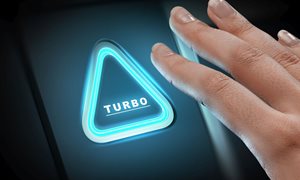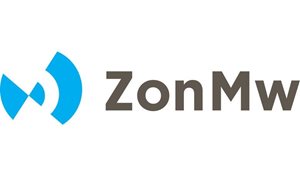 Radboudumc and five SMEs from Gelderland have been awarded a grant of € 2 million from the Province of Gelderland (ERDF) to develop hospital rooms designed to have a healing effect on individual patients. The rooms will be set up according to each patient’s personal profile. This dynamic profile will determine the recovery program, in which games, scents, pictures and virtual reality will all play a part.
Radboudumc and five SMEs from Gelderland have been awarded a grant of € 2 million from the Province of Gelderland (ERDF) to develop hospital rooms designed to have a healing effect on individual patients. The rooms will be set up according to each patient’s personal profile. This dynamic profile will determine the recovery program, in which games, scents, pictures and virtual reality will all play a part.
Four important aspects
The project involved designing a smart, personalized, interactive, restorative system (IHS). Over-60s (the main category admitted to hospital) are given the opportunity to use the system to aid their own recovery. Van Goor: “Previous research identified four aspect that are crucial to recovery. Patients must be in as little pain as possible, have sufficient night rest, experience minimum stress and start exercise as soon as possible, in bed if necessary. We’ve shortened this to Relief, Rest, Relax and Recover: R4. The program is called R4HEAL, which you can read as Room for Heal.”Woods or waterfalls?
How does the program work? Before a patient is admitted, a profile is compiled. Is he or she a morning person or an evening person (an important aspect in terms of the sleep pattern)? Are they easily stressed, do they have a high or a low pain threshold? This profile, updated with ongoing monitoring of the patient’s condition and reactions with sensors, provides personalized advice that can be used to select the right tools, such as health games and audio-visuals. Games can be used to distract from the pain and reduce stress levels. Depending on the patient’s personal preferences, images of woods, a waterfall or an idyllic beach can be projected onto the wall.Self-learning system
Van Goor: “An important part of the IHS involves using algorithms and artificial intelligence to predict the patient’s wishes. This self-learning system analysis enriches the personalized advice, while also building up more general knowledge that will benefit future patients.”Testing for use
The ERDF grant is intended to validate the effectiveness and efficiency of the system, so that hospitals can introduce it on the basis of its proven effects. Van Goor: “Radboud university medical center is not only a project partner for testing various parts of the healing rooms on volunteers, nurses and physicians in its own hospital setting, but is also keen to implement the concept in its planned new building if it proves to be effective.”Related news items

Turbo Grants for four medical-technical research projects
19 October 2021 Four TURBO grants were recently awarded to new technical-medical research proposals. The grants are part of the TURBO program, a collaboration between the University of Twente (TechMed Centre) and the Radboudumc. go to page
Plugging the gap ZonMw/Health Holland grant
3 March 2020 RIMLS en RIHS researchers Willeke Daamen, Frank Vandenbussche, Joris van Drongelen, Toin van Kuppevelt and Janneke Grutters have been granted 1.3 million euro for the development and evaluation of a new technology to prevent premature rupture of fetal membranes (iPPROM). go to page
Charity event for children with a diaphragmatic defect
26 September 2019For the third year in a row, Rotary Ridderkerk - de Waal organised a golf tournament, dinner and auction to raise research funds for children with congenital diaphragmatic hernia. At the end of the day, a cheque worth € 51,000 was handed over to Sanne Botden and Willeke Daamen.
go to page
H2020 Grant for Frank Walboomers and Ronald Bartels
23 May 2019 Frank Walboomers and Ronald Bartels, theme Reconstructive and regenerative medicine, have received a € 500,000 grant for research into graphene biomaterials from the Europan Union Horizon 2020 FET Open programme. go to page
Proudly presenting new theme leaders
20 March 2019 It is our pleasure to introduce the new leaders of the themes Mitochondrial diseases, Reconstructive and regenerative medicine and Vascular damage. go to page
